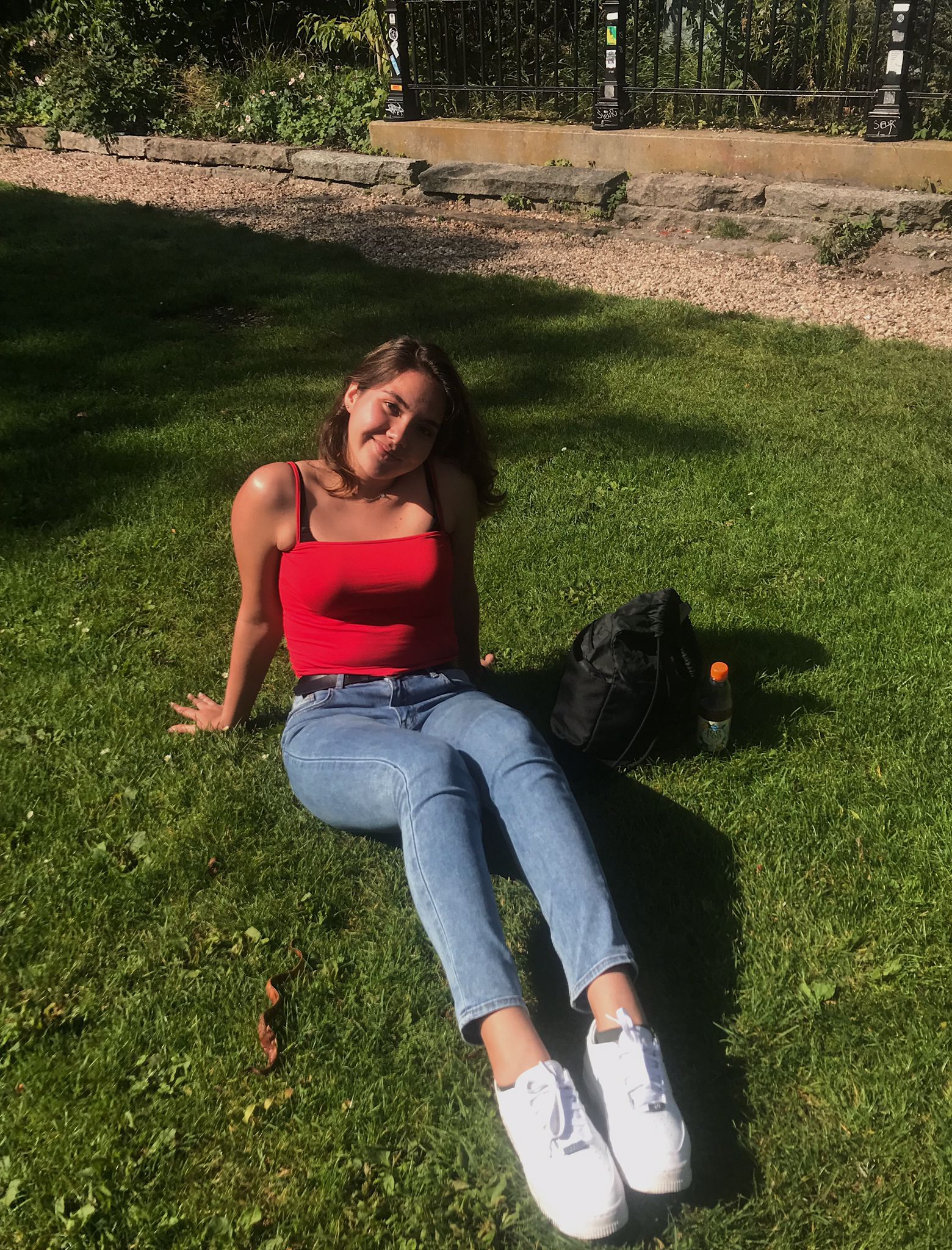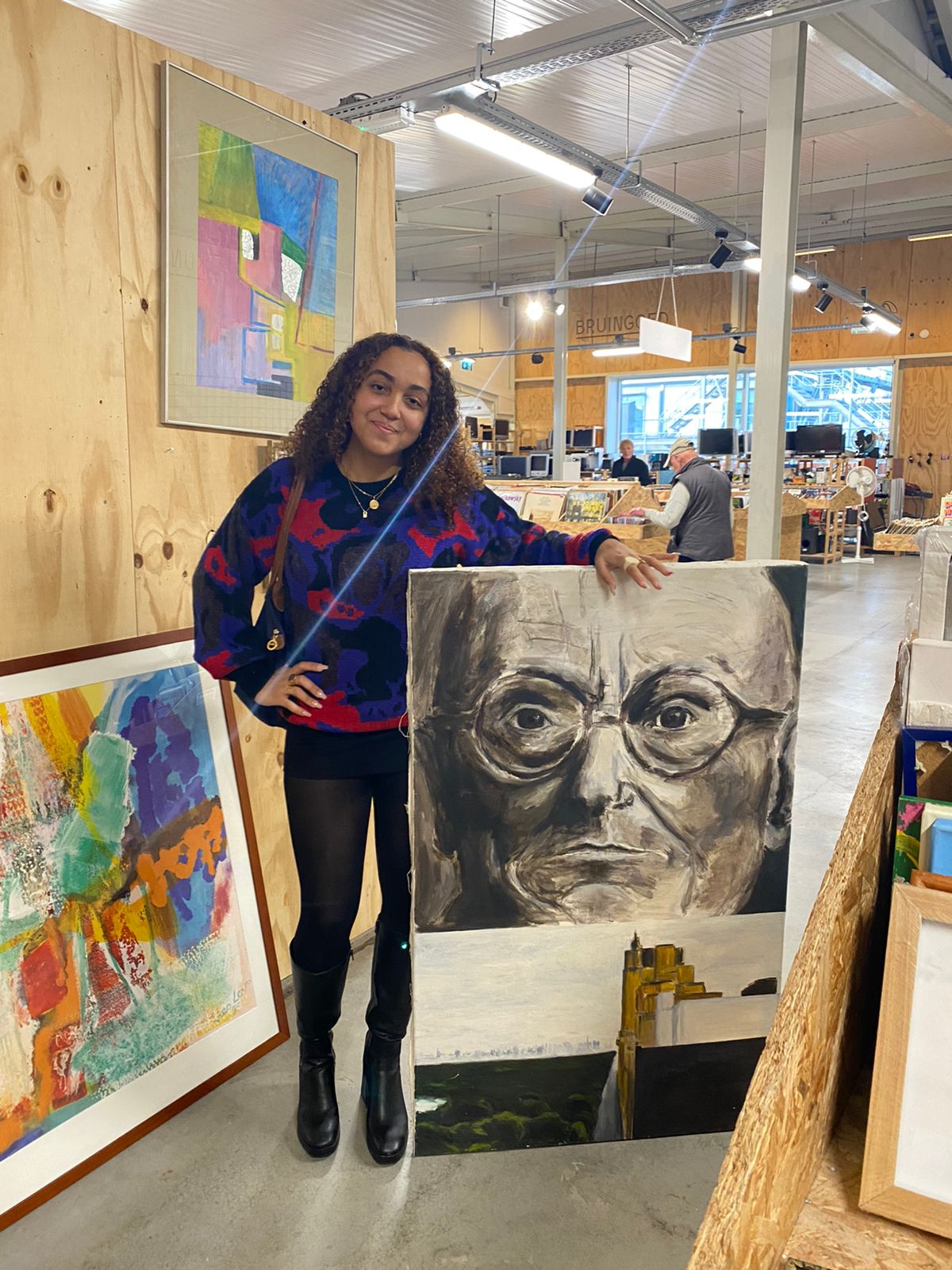
Home is often linked to a place you feel comfortable, the house and city you grew up in, your family, friends and country of origin. Yet, home might mean something quite different to those who moved houses frequently, who have dual citizenship or who identify as third culture kids – something many international students at the UvA experienced. What is home for those international students? Does their meaning differ compared to those who lived in the same country since birth, or is there a universal understanding of what home entails?
Home is often linked to a place you feel comfortable, the house and city you grew up in, your family, friends and country of origin. Yet, home might mean something quite different to those who moved houses frequently, who have dual citizenship or who identify as third culture kids – something many international students at the UvA experienced. What is home for those international students? Does their meaning differ compared to those who lived in the same country since birth, or is there a universal understanding of what home entails?

Irada (21, third-year Political Science bachelor student)
Spiegeloog: Have you always lived in the same country you were born in?
Irada: No, I grew up in Thailand and moved to Amsterdam for my bachelor’s degree.
Spiegeloog: How would you describe your nationality?
Irada: Being Thai-English meant that I stood out as a child as I did not look typically Thai. Since other kids didn’t always perceive me as Thai, I also identified less with my Thai nationality. However, that changed when I started international school. Other students were mixed as well which changed my perception of what “Thai-ness” entails.
Spiegeloog: What does home mean for you?
Irada: Home for me is Thailand but not the country, but my family and friends. Home is connected to my family and social ties but not necessarily the place I grew up. I have grandparents and family in France and the UK so a part of home is also there. Same with my roommates and friends in Amsterdam, those are a big part of making the Netherlands a temporary home.

Dada (24, first-year Cultural Psychology master student)
Spiegeloog: Have you always lived in the same country you were born in?
Dada: No, I was born and raised in Italy but moved abroad during high school for an exchange semester in the States. After finishing high school in Italy, I moved back to California to go to college. I left California three years ago to do my studies in Amsterdam and have been living here since then.
Spiegeloog: How would you describe your nationality?
Dada: I’ve never had a strong national identity but living abroad has made me more aware of my “Italian-ness”. By coming into contact with people from different cultures and nationalities, I realised that Italian culture had a bigger impact on my behaviour and social norms than I previously thought.
Spiegeloog: What does home mean for you?
Dada: I think home is partially where I feel comfortable but it’s not just about being comfortable. I’m always comfortable when I go back to Italy and I still call it home but it’s a different kind of comfort. It’s comfort that comes from familiarity. But my everyday life is somewhere else. I feel more at home in Amsterdam with my friends, university, and apartment. So, I do think of the Netherlands as home even though I have fewer ties and conform less to Dutch norms. I think this is also the case because I’m able to live my life according to my own expectations and be unapologetically myself. I still feel love and have strong ties in Italy but at the same time I cannot be as freely who I am and have to accommodate my family’s expectations which makes Italy less home than the Netherlands.

Laura (19, second-year Political Science bachelor student)
Spiegeloog: Have you always lived in the same country you were born in?
Laura: Sort of, I was born in Florida but we moved to Panama when I was a few months old. I only moved away from Panama when I started my bachelor’s in Amsterdam.
Spiegeloog: How would you describe your nationality?
Laura: I would say I am French-Haitian. While I spent most of my life in Panama, I don’t have Panamanian citizenship.
Spiegeloog: What does home mean for you?
Laura: I would say that while I was growing up, Panama was definitely home even though I’m not a Panamanian citizen. Prior to both of my parents moving out of Panama, it was still a place I considered home and very comforting due to the many places and people I know there. Now being older, I have moved the feeling of home onto my mother, my close friends and specific objects and foods that bring me comfort.

Irada (21, third-year Political Science bachelor student)
Spiegeloog: Have you always lived in the same country you were born in?
Irada: No, I grew up in Thailand and moved to Amsterdam for my bachelor’s degree.
Spiegeloog: How would you describe your nationality?
Irada: Being Thai-English meant that I stood out as a child as I did not look typically Thai. Since other kids didn’t always perceive me as Thai, I also identified less with my Thai nationality. However, that changed when I started international school. Other students were mixed as well which changed my perception of what “Thai-ness” entails.
Spiegeloog: What does home mean for you?
Irada: Home for me is Thailand but not the country, but my family and friends. Home is connected to my family and social ties but not necessarily the place I grew up. I have grandparents and family in France and the UK so a part of home is also there. Same with my roommates and friends in Amsterdam, those are a big part of making the Netherlands a temporary home.

Dada (24, first-year Cultural Psychology master student)
Spiegeloog: Have you always lived in the same country you were born in?
Dada: No, I was born and raised in Italy but moved abroad during high school for an exchange semester in the States. After finishing high school in Italy, I moved back to California to go to college. I left California three years ago to do my studies in Amsterdam and have been living here since then.
Spiegeloog: How would you describe your nationality?
Dada: I’ve never had a strong national identity but living abroad has made me more aware of my “Italian-ness”. By coming into contact with people from different cultures and nationalities, I realised that Italian culture had a bigger impact on my behaviour and social norms than I previously thought.
Spiegeloog: What does home mean for you?
Dada: I think home is partially where I feel comfortable but it’s not just about being comfortable. I’m always comfortable when I go back to Italy and I still call it home but it’s a different kind of comfort. It’s comfort that comes from familiarity. But my everyday life is somewhere else. I feel more at home in Amsterdam with my friends, university, and apartment. So, I do think of the Netherlands as home even though I have fewer ties and conform less to Dutch norms. I think this is also the case because I’m able to live my life according to my own expectations and be unapologetically myself. I still feel love and have strong ties in Italy but at the same time I cannot be as freely who I am and have to accommodate my family’s expectations which makes Italy less home than the Netherlands.

Laura (19, second-year Political Science bachelor student)
Spiegeloog: Have you always lived in the same country you were born in?
Laura: Sort of, I was born in Florida but we moved to Panama when I was a few months old. I only moved away from Panama when I started my bachelor’s in Amsterdam.
Spiegeloog: How would you describe your nationality?
Laura: I would say I am French-Haitian. While I spent most of my life in Panama, I don’t have Panamanian citizenship.
Spiegeloog: What does home mean for you?
Laura: I would say that while I was growing up, Panama was definitely home even though I’m not a Panamanian citizen. Prior to both of my parents moving out of Panama, it was still a place I considered home and very comforting due to the many places and people I know there. Now being older, I have moved the feeling of home onto my mother, my close friends and specific objects and foods that bring me comfort.



